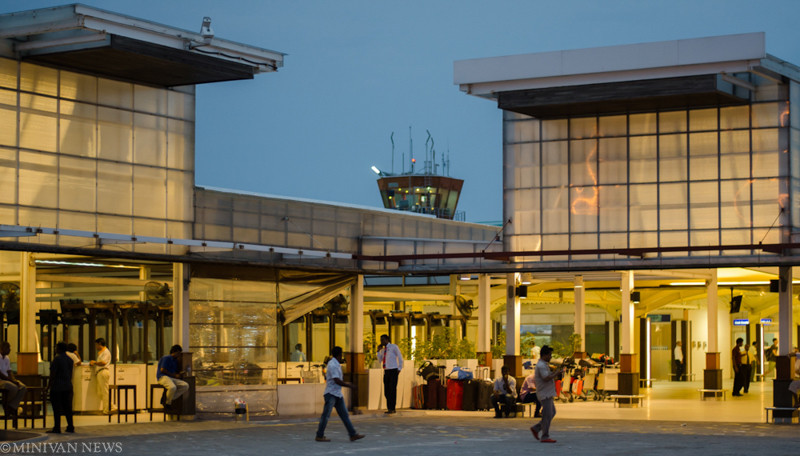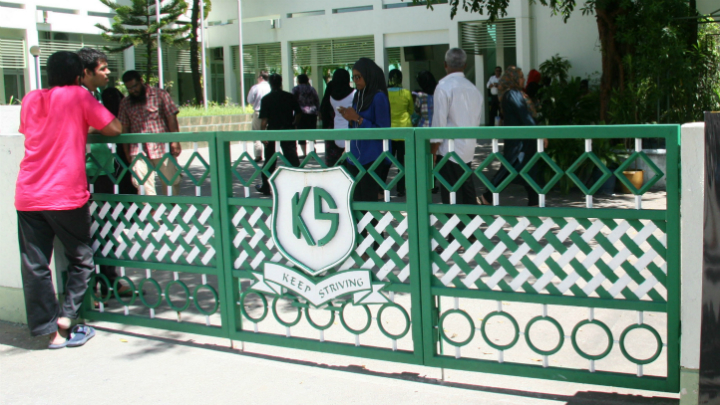Jumhooree Party (JP) leader Gasim Ibrahim’s Villa Group is facing bankruptcy with the courts refusing to issue stay orders on a US$90 million payment to the state ahead of an April 18 deadline.
The civil court yesterday denied Villa’s requests for stay orders, stating the company does not face “irrevocable losses” if a notice by the tax authority to collect US$90 million in allegedly unpaid rent and fines is enforced.
The rulings pave the way for the state to freeze Villa’s bank accounts after April 18.
Gasim has said unfairly freezing Villa’s accounts would “impoverish thousands of citizens” and that the public does not want one of the largest companies in the country to “head towards bankruptcy.”
However, the court said the state could reimburse and compensate the company if the ongoing cases are decided in Villa’s favour.
The JP launched daily anti-government demonstrations in alliance with the main opposition Maldivian Democratic Party (MDP) in early February.
However, since the notice was issued, Gasim has not been seen in opposition protests or made any comments on a deepening political crisis.
Gasim made an appearance on Villa TV on Saturday for the first time in weeks and appealed for discussions with the government to resolve the dispute, insisting that Villa does not owe the “imaginary” amount.
He noted the JP had not condemned the sentencing of former president Mohamed Nasheed to 13-years in jail on terrorism charges last month
“When the judiciary made a judgement I don’t want to comment on it,” he said.
The JP is remaining “silent” and presently does not have a “stand” of supporting any party, Gasim said.
The party is not officially a part of the ‘Maldivians against brutality’ campaign launched by the MDP and religious conservative Adhaalath Party, he added.
Two European banks have cancelled loans worth US$80 million due to media reports of the notice, Gasim said.
Gasim’s interview followed strong criticism from tourism minister Ahmed Adeeb at a ruling coalition rally last week. He accused the tycoon of hoarding islands and lagoons and refusing to pay money owed to the state.
Adeeb also said the JP leader was “in hiding” after unsuccessfully seeking the presidency through his opposition alliance.
In response, Gasim said he is following his best judgment and suggested Adeeb’s anger might stem from insecurity or “lack of self-confidence”.
However, Gasim said he does not bear “animosity towards anyone” and repeatedly said he is ready to meet president Abdulla Yameen or Adeeb at any time.
Senior members of the JP are active in street protests in their individual capacity, Gasim said.
Bankruptcy
The government denies the opposition’s accusations of unfairly targeting Gasim’s business following the JP’s split from the ruling coalition.
The tourism ministry terminated agreements for several properties leased to Villa and subsidiary companies on February 5, shortly after the JP formed the alliance with the MDP.
On February 26, a day before an MDP-JP anti-government mass rally, the Maldives Inland Revenue Authority (MIRA) gave a 30-notice for Villa to pay US$90 million allegedly owed as unpaid rent and fines for the seized properties.
Gasim did not attend the February 27 protest march after failing to return from a trip to Sri Lanka
After the 30-day notice expired, MIRA issued a 20-day notice warning Villa that its accounts will be frozen under the authority’s enforcement policy against defaulting taxpayers.
After the tourism ministry terminated the agreements, Villa filed five cases against the ministry in February, contending that the move was unlawful.
Five additional cases were filed against MIRA over the US$90 million notice.
In rulings during the past two weeks, the civil court refused to grant stay orders in any of the cases. Villa is currently in the process of appealing the rulings at the High Court.
While the court initially granted a stay order in one case in early February, the High Court overturned the ruling.
A Villa official told Minivan New today that the judge who granted the stay order was transferred to the drug court.
The official explained that the properties at stake were leased as part of a settlement agreement signed with the government on December 12, 2013, less than a month after president Yameen took office.
The settlement agreement was reached after the Supreme Court ordered the state to pay over US$9 million to Villa. As part of the settlement, the government signed ‘reinstated and amended lease agreements’ with Villa for several islands and lagoons.
Gasim noted that Villa paid the state about US$15.8 million eight years ago as advance payment for the leased properties.
However, MIRA issued the 30-day notice claiming Villa owed US$75 million as fines and more than US$14 million as unpaid rent dating back to the original lease agreements signed in 2006 and 2007.
Under the settlement agreement, the government had agreed to forgo rents for the leased islands and lagoons for five years and seven years, respectively.
Correction: A previous version of this article stated that the tax authority is seeking US$100 million from the Villa Group, based on statements by Gasim Ibrahim. The company has since explained that the accurate figure is US$90 million.
Likes (4)Dislikes
(4)Dislikes (0)
(0) 


